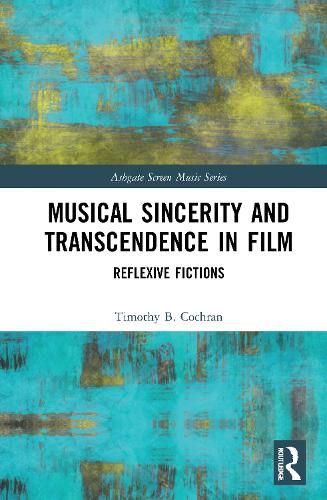Readings Newsletter
Become a Readings Member to make your shopping experience even easier.
Sign in or sign up for free!
You’re not far away from qualifying for FREE standard shipping within Australia
You’ve qualified for FREE standard shipping within Australia
The cart is loading…






Musical Sincerity and Transcendence in Film focuses on the ways filmmakers treat music reflexively-that is, draw attention to what it is and what it can do.
Examining a wide range of movies from the last thirty-five years including examples from Indiewood, teen film, and blockbuster cinema.
The book explores two recurring ideas about music implied by foregrounded musical activity on screen: that music can be a potent means of sincere expression and genuine human connection and that music can enable transcendence of disenchantment and the mundane.
The book covers eclectic critical terrain to highlight various layers of musical sincerity and transcendence in film, including the nineteenth-century aesthetics of E.T.A. Hoffmann, David Foster Wallace’s literary resistance to irony (sometimes called the New Sincerity), strategies of self-revelation in singer-songwriter repertoires, Lionel Trilling’s distinction between sincerity and authenticity, theories of play, David Nye’s notion of the American technological sublime, and Svetlana Boym’s writings on nostalgia.
These lenses reveal that film is a way of perpetuating, revising, and critiquing ideas about music and that music in film is a potent means of exploring broader social, emotional, and spiritual desires.
$9.00 standard shipping within Australia
FREE standard shipping within Australia for orders over $100.00
Express & International shipping calculated at checkout
Musical Sincerity and Transcendence in Film focuses on the ways filmmakers treat music reflexively-that is, draw attention to what it is and what it can do.
Examining a wide range of movies from the last thirty-five years including examples from Indiewood, teen film, and blockbuster cinema.
The book explores two recurring ideas about music implied by foregrounded musical activity on screen: that music can be a potent means of sincere expression and genuine human connection and that music can enable transcendence of disenchantment and the mundane.
The book covers eclectic critical terrain to highlight various layers of musical sincerity and transcendence in film, including the nineteenth-century aesthetics of E.T.A. Hoffmann, David Foster Wallace’s literary resistance to irony (sometimes called the New Sincerity), strategies of self-revelation in singer-songwriter repertoires, Lionel Trilling’s distinction between sincerity and authenticity, theories of play, David Nye’s notion of the American technological sublime, and Svetlana Boym’s writings on nostalgia.
These lenses reveal that film is a way of perpetuating, revising, and critiquing ideas about music and that music in film is a potent means of exploring broader social, emotional, and spiritual desires.